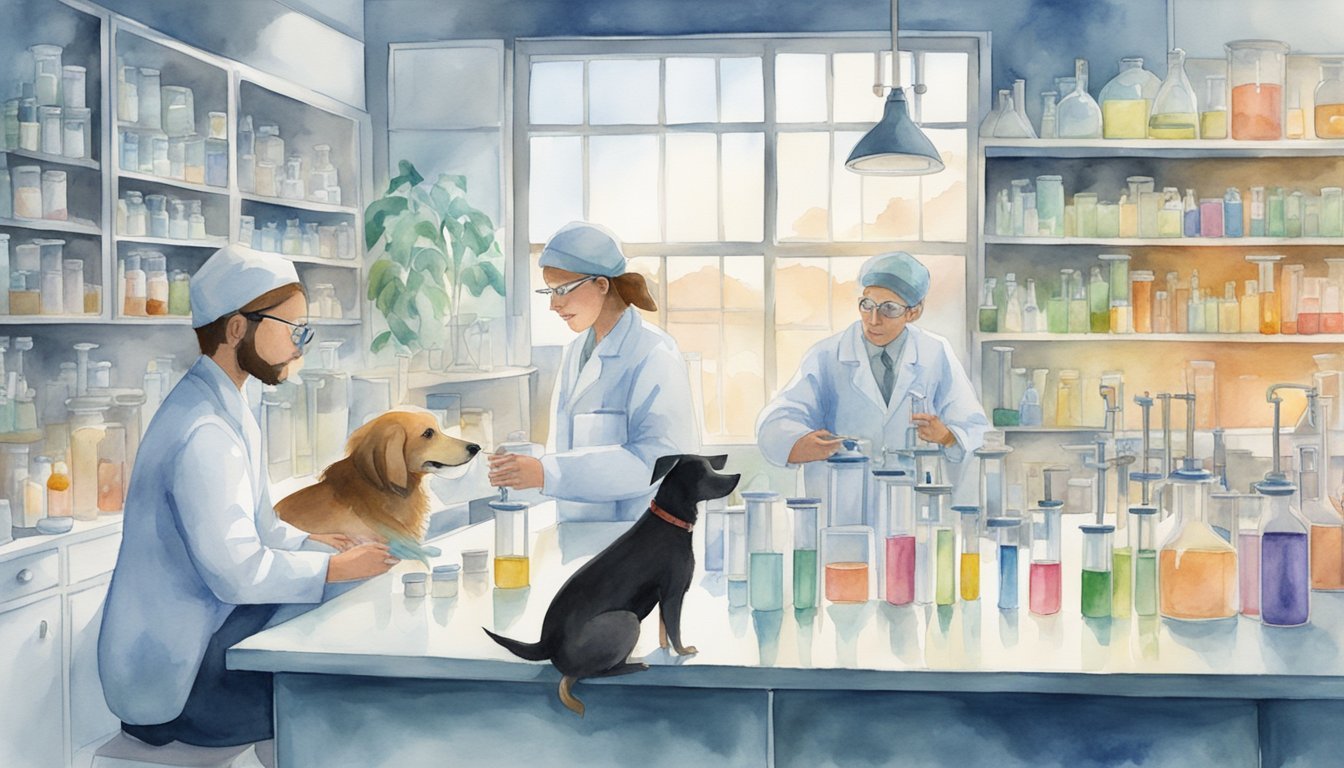Understanding Dog Cloning
Dog cloning is a complex process that leverages the latest advancements in genetics to create a new dog with the same DNA as the original. It involves collecting cells from the dog to be cloned, manipulating these cells to develop an embryo, and then implanting this embryo into a surrogate mother.
Fundamentals of Cloning
Cloning is the process of creating a genetically identical copy of an original organism. In the context of dogs, this involves taking somatic cells from the canine to be cloned. These cells contain the complete set of the dog’s DNA, which is necessary for creating a genetic replica. The nucleus of an egg cell is removed to prepare it for the next step – somatic cell nuclear transfer (SCNT).
Genetic Science Behind Cloning
The genetic science behind cloning centers around DNA, the carrier of genetic information. Scientists use the process of somatic cell nuclear transfer (SCNT) to insert the DNA from a donor’s somatic cell into an egg cell from which the nucleus has been removed. This creates an embryo with the same genetic makeup as the original animal. After the embryo begins cell division, it is implanted into a surrogate mother where it can develop into a cloned dog.
Key Milestones in Canine Cloning
Canine cloning has seen significant advancements since the birth of the first cloned dog, Snuppy, in 2005. Research into genetic diseases and genetic preservation has also benefited from canine cloning technologies. The ability to clone dogs has provided insights into genetic engineering and the treatment of various genetic conditions. Cloning also raises questions on the ethics and implications of creating genetic replicas in animals, which continues to be a subject of debate among scientists and the general public.
Implications and Ethics of Cloning Dogs

The process of dog cloning is a complex interplay of science and ethics, from costs and health implications to public perception and moral dilemmas.
Dog Cloning Services and Costs
Dog cloning services such as those provided by Sooam Biotech and ViaGen Pets offer pet owners the chance to create genetic copies of their beloved pets. The cost of cloning a dog is significant, often exceeding $50,000, which covers the intricate process starting from cell collection to the birth of a cloned puppy by a surrogate mother.
Health and Longevity of Cloned Dogs
Snuppy, the first cloned dog, sparked widespread interest in the potential health and longevity of cloned animals. Cloning efficiency and the health of cloned dogs, such as Snuppy and others since, remain scrutinized. Cloned animals may be prone to genetic diseases or phenotypic variations, and monitoring serum hormone levels is vital to assess their health status.
Ethical Considerations and Public Perception
The ethics of pet cloning involve several considerations. A study on ethical aspects of cloning dogs discusses the implications on animal welfare, the integrity of animals, and the nature of companionship and love. The emotional motivations of pet owners seeking to clone a dog, the psychological disorders potentially faced by surrogate mothers in pregnancies, and the wider public perception of animal cloning all feed into the ongoing debate.

